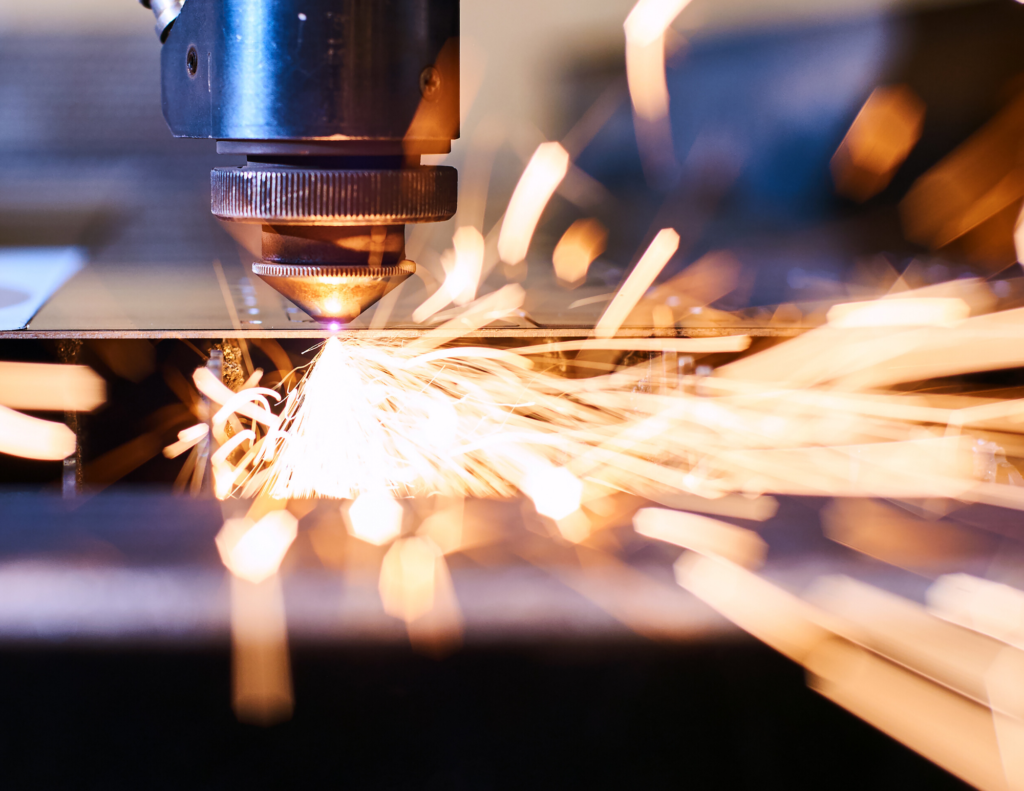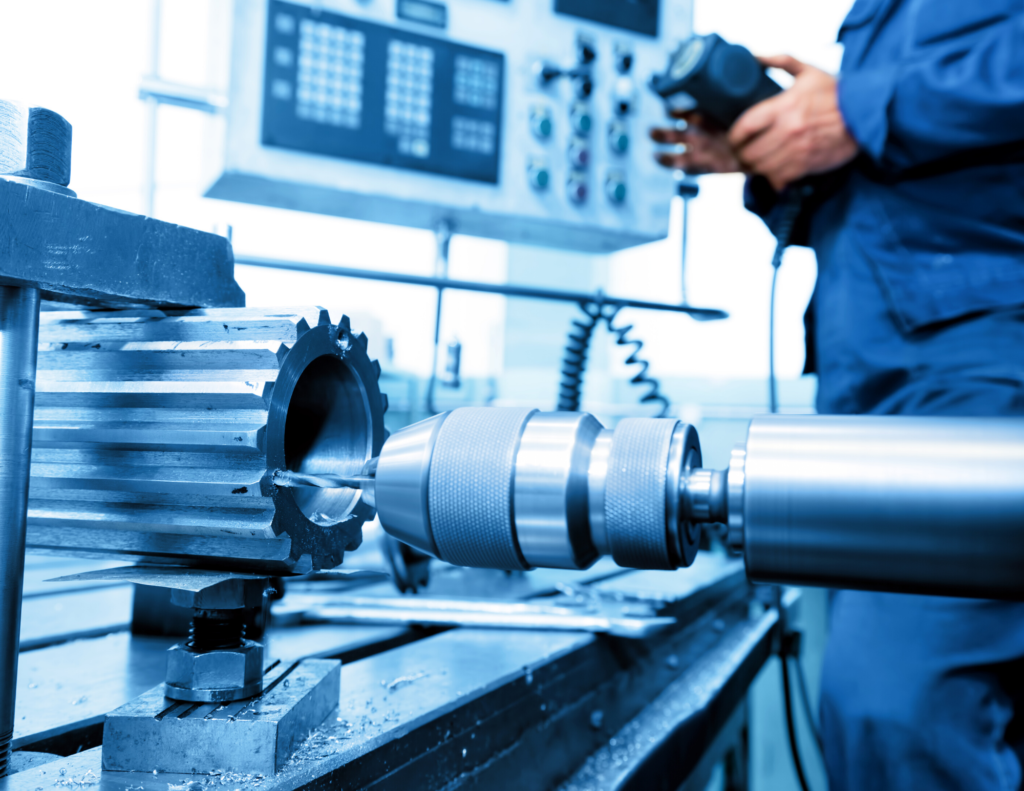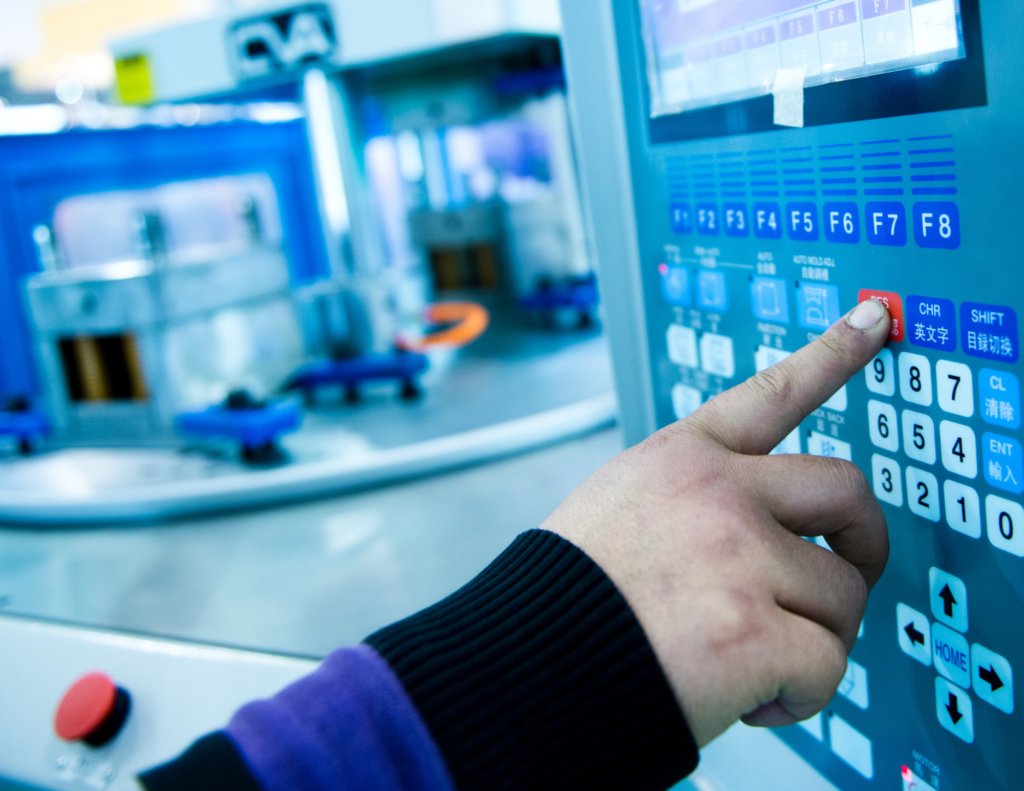What is a CNC Machinist and what do they do?
CNC Machinists (computer numerically controlled machinists) are responsible for creating integral pieces of larger products that get used in so many different ways each day. CNC Machinists help manufacturing companies by cutting and shaping small pieces of metal, wood, or other materials into manufacturing components. These components can go into cars, houses, cell phones, and so much more. Someone who loves technology and has great attention to detail would be perfect for a job like this. People in these job roles use machine tools, such as lathes, milling machines or grinders to produce precision metal, plastic, or other material parts and components.
Many machinists must be able to use both manual and CNC machinery. While there has been an increase in automation over the years, the machines still need a human being to run, program, and maintain them. CNC machines control the cutting tool speed and do all necessary cuts to create a part and someone, a CNC Machinist, need to be able to understand how to program and run these paths. The machinist determines the cutting path, the speed of the cut, and the feed rate by programming instructions into the CNC machine.

What does a CNC Machinist typically do each day?
A CNC Machinist is responsible for keeping the machines that are responsible for cutting and shaping these manufacturing components working and calibrated.
A CNC Machinist ensures precise cutout of components and essentially helps make sure that the machines are outputting the best materials cut and shaped to set specifications.
Their day is made up of making sure the equipment is set up, working, and in order and that the output is what’s expected. They perform quality control checks often and solve complex problems when necessary to keep the manufacturing process running as smoothly as possible.
CNC Machinists also adjust machine feed and speed, change cutting tools, or adjust machine controls when needed to ensure final products come out according to blueprint specifications.

What kind of education does a CNC Machinist role require?
CNC Machinists need a minimum of a high school diploma in order to work in this role, however more training is always better. Outside of on-the-job training one may find at another company in the same role, CNC Machinists can gain training through courses offered at technical schools and community colleges.
A degree isn’t required at most companies, but it is dependent on the business and organization. Someone looking to pursue a CNC Machinist role can get accreditation through the National Institute of Metalworking Skills (NIMS). There, they offer a few different levels of certification and is widely popular with other CNC Machinists in the industry. This is voluntary training but highly respected and favored.
What other skills should someone have if they want to be a CNC Machinist?
CNC Machinists understand their tools are complex and driven by computers. These pieces of equipment are integral to many manufacturing businesses so error must be avoided at all costs. These machines are complex and costly so maintaining them so the components can be manufactured is extremely important.

Other skills that a CNC Machinist should possess include
- Attention to detail
- Computer literacy
- Problem-solving skills
- Math skills
- Teamwork skills
- Time management skills
- Strong work ethic
- Commitment and understanding of safety and rules
- Great communication skills
- Flexibility
All of these hard and soft skills can help a CNC Machinist with their job role and really help them excel at any business or organization.
What does a CNC Machinist make for salary?
Most CNC Machinists make an average of $40,000-$46,000 a year for salary. Like many other industries, a senior or more advanced CNC Machinist with the skills and certification required will make more than an entry level CNC Machinist.
What kind of career path can a CNC Machinist take if they want to advance?
This career is great because it’s one that someone can have and stay with without needing to move to another role. Machines and technologies are evolving rapidly and manufacturing machines will be changing as well. Someone can stay as a CNC Machinist and learn in-field and through education and work to become a head or senior CNC Machinist.
If you are someone who wants some diversity, starting as a CNC Machinist is a great way to do that as well.
- You can become a set-up machinist responsible for setting up other CNC machines for staff to use.
- You can become a CNC programmer and create codes that will be programmed into CNC machines.
- You can become a shop manager – a CNC Machinist has a working knowledge of the shop and how to be efficient.
What kind of impact does a CNC Machinist have on society?
Manufacturing and machining components to some of the integral items we use daily has a huge impact on society. Components that go into manufacturing the cars we drive, the houses we live in, the electronics that we now use to live our lives all create a lasting impact on all of us.
Why work with a recruiter to help place you in an open CNC Machinist job?
This one is easy – because we know the industry. Recruiters who have been placing candidates in CNC Machinist jobs in your region know what jobs are open (which is easier for you) and know which job openings will fit your skillset (again, easier for you!).
With a very competitive market for businesses looking to fill jobs, it’s in your best interest to find a recruitment partner that knows what positions are open that align with your skillset so you aren’t left wasting time scouring and applying for jobs that may not be the perfect fit for you.
Let GTR help.
Are you a skilled CNC Machinist looking for a new place to work? Let GTR help you find the best company and position for you. We’ve been successfully placing candidates for over 17 years so we know a thing or two about the industry.






